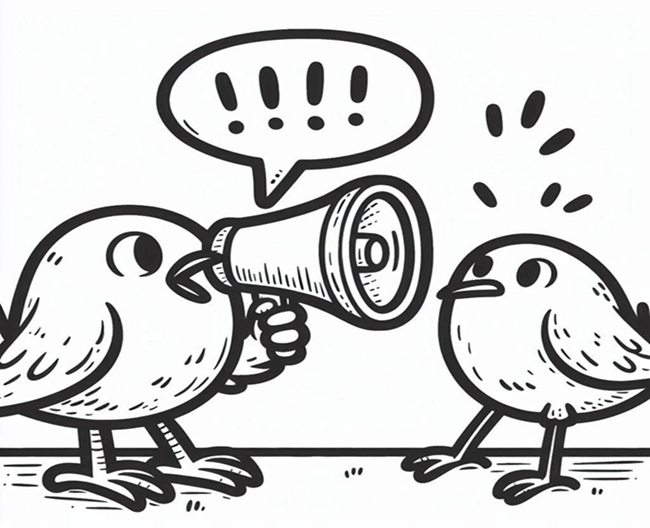Feb 22, 2026
Feb 22, 2026
by Sujata C
Few days back Union Transport Minister Nitin Gadkari announced that he will bring a legislation that will give relief from blaring vehicular horns. He wants the horns to sound like table, flute and violin, to calm the fraying nerves of commuters and possibly reduce road rage. Quite a brain wave, I must say – real out of the box thinking.
Urban noise pollution is a growing problem in many cities due to factors like increasing traffic, urbanization, and industrial expansion. Prolonged exposure to noise can lead to stress, sleep disturbances, cardiovascular problems, hearing loss, and even high blood pressure in humans. It reduces quality of life and can negatively impact work, leisure, and overall well-being.
But did you know this? Noise Pollution affects plants, birds and animals too!
Urban noise pollution, primarily caused by human activities such as traffic, construction, and industrial operations, significantly affects plants, although less visibly than animals. Sound waves,(especially harsh and high intensity), can disrupt plant growth and development indirectly by interfering with the surrounding ecosystem. One study has found that yellow warblers of Galapagos Islands became agitated and more aggressive due to the human induced noise in its habitat.
Studies have found in the last few years that in loud places, some birds sing at higher frequencies. Bats can have trouble finding prey. Frogs can struggle to find mates. And whales seem to be vocalizing with more volume to communicate with each other. Animal and bird watchers have observed that many species are changing their behaviour and preferring to move to quieter locales.
One major impact of noise pollution is on pollinators like bees and birds. Loud, constant noise can drive these species away, reducing the chances of pollination and subsequently affecting plant reproduction. This leads to a decline in plant diversity and abundance, particularly in areas near highways or urban centers. Additionally, some studies suggest that noise can affect seed germination and root development. Though plants do not have ears, they can perceive vibrations. These vibrations may trigger stress responses, alter hormone levels like auxins and cytokinins, and disturb normal physiological functions.
Moreover, noise pollution can alter the behaviour of animals that interact with plants, such as seed dispersers. For instance, if birds avoid noisy areas, seeds may not be spread effectively, limiting plant distribution. Over time, these effects can weaken ecosystems, making them more vulnerable to environmental changes. Therefore, while plants may not "hear" noise, they are still vulnerable to its ecological consequences.
ends

Without this my mate can't hear hear my call, the traffic is so loud!
One major impact of noise pollution is on pollinators like bees and birds. Loud, constant noise can drive these species away, reducing the chances of pollination and subsequently affecting plant reproduction. This leads to a decline in plant diversity and abundance, particularly in areas near highways or urban centers. Additionally, some studies suggest that noise can affect seed germination and root development. Though plants do not have ears, they can perceive vibrations. These vibrations may trigger stress responses, alter hormone levels like auxins and cytokinins, and disturb normal physiological functions.
Moreover, noise pollution can alter the behaviour of animals that interact with plants, such as seed dispersers. For instance, if birds avoid noisy areas, seeds may not be spread effectively, limiting plant distribution. Over time, these effects can weaken ecosystems, making them more vulnerable to environmental changes. Therefore, while plants may not "hear" noise, they are still vulnerable to its ecological consequences.
Image created by author using "Designer"
26-Apr-2025
More by : Sujata C